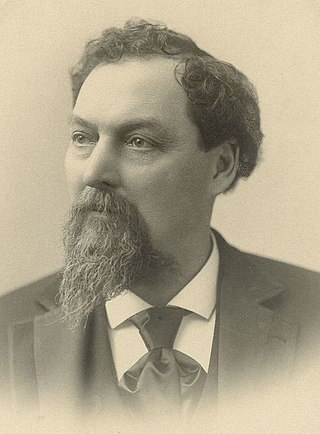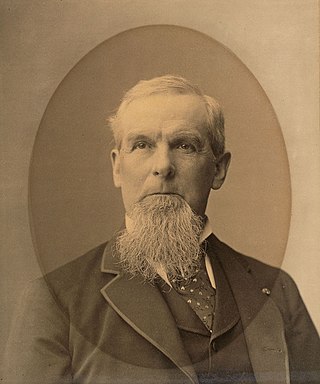
The 1996 United States Senate elections were held on November 5, with the 33 seats of Class 2 contested in regular elections. Special elections were also held to fill vacancies. They coincided with the presidential election of the same year, in which Democrat Bill Clinton was re-elected president.

The 1978 United States Senate elections were held on November 7, in the middle of Democratic President Jimmy Carter's term. The 33 seats of Class 2 were contested in regular elections. Special elections were also held to fill vacancies.

The 1974 United States Senate elections were held on November 5, with the 34 seats of Class 3 contested in regular elections. They occurred in the wake of the Watergate scandal, Richard M. Nixon's resignation from the presidency, and Gerald Ford's subsequent pardon of Nixon. Economic issues, specifically inflation and stagnation, were also a factor that contributed to Republican losses. As an immediate result of the November 1974 elections, Democrats made a net gain of three seats from the Republicans, as they defeated Republican incumbents in Colorado and Kentucky and picked up open seats in Florida and Vermont, while Republicans won the open seat in Nevada. Following the elections, at the beginning of the 94th U.S. Congress, the Democratic caucus controlled 60 seats, and the Republican caucus controlled 38 seats.

The 1966 United States Senate elections were elections on November 8, 1966, for the United States Senate which occurred midway through the second term of President Lyndon B. Johnson. The 33 seats of Class 2 were contested in regular elections. Special elections were also held to fill vacancies. With divisions in the Democratic base over the Vietnam War, and with the traditional mid-term advantage of the party not holding the presidency, the Republicans took three Democratic seats, thereby breaking Democrats' 2/3rds supermajority. Despite Republican gains, the balance remained overwhelmingly in favor of the Democrats, who retained a 64–36 majority. Democrats were further reduced to 63–37, following the death of Robert F. Kennedy in June 1968.

The 1964 United States Senate elections were held on November 3. The 33 seats of Class 1 were contested in regular elections. Special elections were also held to fill vacancies. They coincided with the election of President Lyndon B. Johnson by an overwhelming majority, to a full term. His Democratic Party picked up a net two seats from the Republicans. As of 2023, this was the last time either party has had a two-thirds majority in the Senate, which allowed the Senate Democrats to override a veto, propose constitutional amendments, or convict and expel certain officials without any votes from Senate Republicans. However, internal divisions would have prevented the Democrats from having done so. The Senate election cycle coincided with Democratic gains in the House in the same year.

United States gubernatorial elections were held on November 7, 2006, in 36 states and two territories. The elections coincided with the midterm elections of the United States Senate and the United States House of Representatives.

United States gubernatorial elections were held on November 5, 2002, in 36 states and two territories. The Republicans won eight seats previously held by the Democrats, as well as the seat previously held by Minnesota governor Jesse Ventura, who was elected on the Reform Party ticket but had since renounced his party affiliation. The Democrats won 10 seats previously held by the Republicans, as well as the seat previously held by Maine governor Angus King, an independent. The elections were held concurrently with the other United States elections of 2002.

Henry Bradstreet Cleaves was an American politician and the 43rd Governor of Maine from 1893 to 1897.

The 1998 Maine gubernatorial election took place on November 3, 1998 to elect the governor of Maine. Incumbent Independent governor Angus King won re-election to a second term, defeating Republican nominee James B. Longley Jr., Democratic nominee Thomas J. Connolly, Green Independent nominee Pat LaMarche and Taxpayers' Party nominee William P. Clarke Jr.

The 1920 United States Senate election in Connecticut was held on November 2, 1920.

United States gubernatorial elections were held on November 8, 2022, in 36 states and three territories. As most governors serve four-year terms, the last regular gubernatorial elections for all but two of the seats took place in the 2018 U.S. gubernatorial elections. The gubernatorial elections took place concurrently with several other federal, state, and local elections, as part of the 2022 midterm elections.

The 2024 United States elections are scheduled to be held on Tuesday, November 5, 2024. During this presidential election year, the president and vice president will be elected. In addition, all 435 seats in the United States House of Representatives and 34 of the 100 seats in the United States Senate will be contested to determine the membership of the 119th United States Congress. Thirteen state and territorial governorships and numerous other state and local elections will also be contested.

The 1907 Massachusetts gubernatorial election was held on November 5. Incumbent Republican Governor Curtis Guild Jr. was re-elected for a third one-year term.

Elections were held in Illinois on Tuesday, November 3, 1936.

A general election was held in the U.S. state of Wyoming on Tuesday, November 6, 1894. All of the state's executive officers—the Governor, Secretary of State, Auditor, Treasurer, and Superintendent of Public Instruction—were up for election. The Republican Party, helped by the strong performance of the Populist Party, which operated as a spoiler to the Democratic Party, won back the governorship and improved its margin of victory in all other statewide offices.

The 1858 Maine gubernatorial election was held on 13 September 1858 in order to elect the Governor of Maine. Incumbent Republican Governor Lot M. Morrill won re-election against Democratic nominee Manassah H. Smith in a rematch of the previous election.

The 1859 Maine gubernatorial election was held on 12 September 1859 in order to elect the Governor of Maine. Incumbent Republican Governor Lot M. Morrill won re-election against Democratic nominee Manassah H. Smith in a second rematch of the previous elections.

The 1884 Maine gubernatorial election was held on 8 September 1884 in order to elect the Governor of Maine. Incumbent Republican Governor Frederick Robie won re-election against Democratic nominee John B. Redman, Greenback nominee Hosea B. Eaton and Prohibition nominee William T. Eustis.

The 1890 Maine gubernatorial election was held on 8 September 1890 in order to elect the Governor of Maine. Incumbent Republican Governor Edwin C. Burleigh won re-election against Democratic nominee William P. Thompson, Prohibition nominee Aaron Clark and Labor nominee Isaac Clark.

The 1892 Maine gubernatorial election was held on 12 September 1892 in order to elect the Governor of Maine. Republican nominee and former Attorney General of Maine Henry B. Cleaves defeated Democratic nominee Charles F. Johnson, Prohibition nominee Timothy B. Hussey, Populist nominee Luther C. Bateman and Labor nominee E. F. Knowlton.




















